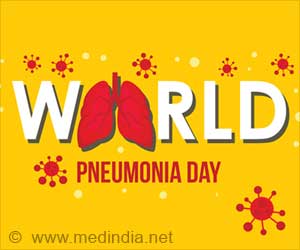
A groundbreaking study unveils the transformative potential of an experimental nasal spray, named etripamil. This innovative treatment empowers patients to self-administer at home, without the intervention of a physician, effectively and safely combating recurrent episodes of paroxysmal supraventricular tachycardia (PSVT), a condition that causes rapid abnormal heart rhythms. (1✔ ✔Trusted Source
Etripamil Nasal Spray for Recurrent Paroxysmal Supraventricular Tachycardia Conversion
)
By offering real-world evidence, the study demonstrates that a diverse range of patients can harness the therapeutic benefits of etripamil, potentially liberating them from the cycle of repeated hospital visits for invasive treatments. This monumental discovery marks a significant leap forward in patient care, ushering in a new era of convenience, accessibility, and improved outcomes in the management of abnormal heart rhythms.
The study is the latest in a series of studies by lead author Dr. James Ip, professor of clinical medicine at Weill Cornell Medicine and a cardiologist at New York-Presbyterian/Weill Cornell Medical Center, and colleagues to demonstrate the potential of nasal spray calcium-channel blocker etripamil as an at-home treatment PSVT. Dr. Ip received compensation as a steering committee member for Milestone Pharmaceuticals, the maker of etripamil and sponsor of the trial.
Understanding PSVT: Rapid Heart Rhythms, Symptoms
Patients with PSVT experience sudden and recurrent rapid heart rhythms triggered by abnormal electrical activity in the upper chambers of the heart. Though the episodes are not commonly life-threatening, they can be frightening and cause shortness of breath, chest pain, dizziness or fainting and lead to frequent emergency department visits. Treatment for PSVT often requires hospitalization to receive intravenous medication. Some patients undergo a procedure called cardiac ablation, where the physician threads thin wires through their blood vessels to the heart and uses them to treat the short circuits the cause the abnormal normal heart rhythm.
Dr. Ip and colleagues previously showed that almost two-thirds of patients with PSVT who took one or more doses of the calcium channel blocker etripamil without a physician present experienced symptom relief on average in 17 minutes. The latest study builds on those findings, showing that etripamil is safe and effective under more real-world circumstances in a larger patient population, and could be safely used to treat multiple episodes of PSVT.
The new study enrolled 1116 patients at 148 sites in the United States, Canada and South America. It did not require a pretest dose supervised by a physician as the previous studies did. It also included patients with a history of atrial fibrillation or atrial flutter, who were excluded from the previous studies. Patients monitored their heart for one hour with a home electrocardiogram monitor after self-administering the first dose, took an additional dose if necessary, and were allowed to self-treat up to four PSVT episodes with etripamil.
Two-thirds of the patients experienced relief within an hour, and the average time needed for symptom relief was 17 minutes. Mild, temporary nasal symptoms such as runny nose, nasal congestion or discomfort, and bloody nose were common after the first use of etripamil but became less common with subsequent use.
Advertisement
Reference:
- Etripamil Nasal Spray for Recurrent Paroxysmal Supraventricular Tachycardia Conversion – (https://www.sciencedirect.com/science/article/pii/S0735109724066701?via%3Dihub)
Source-Eurekalert



